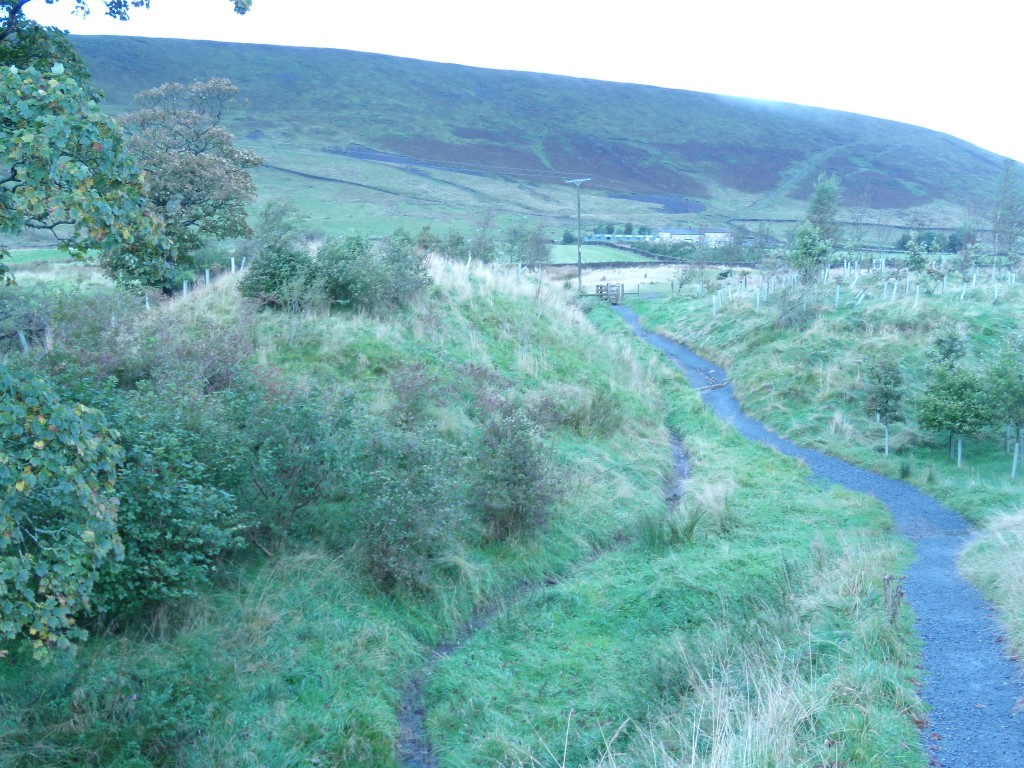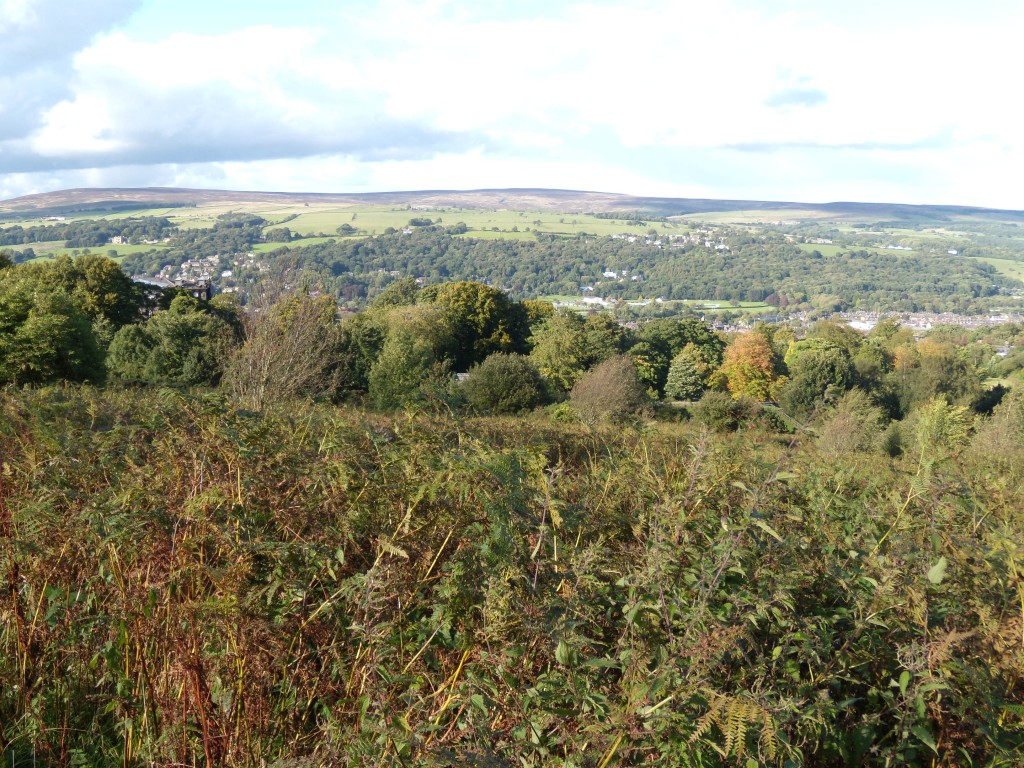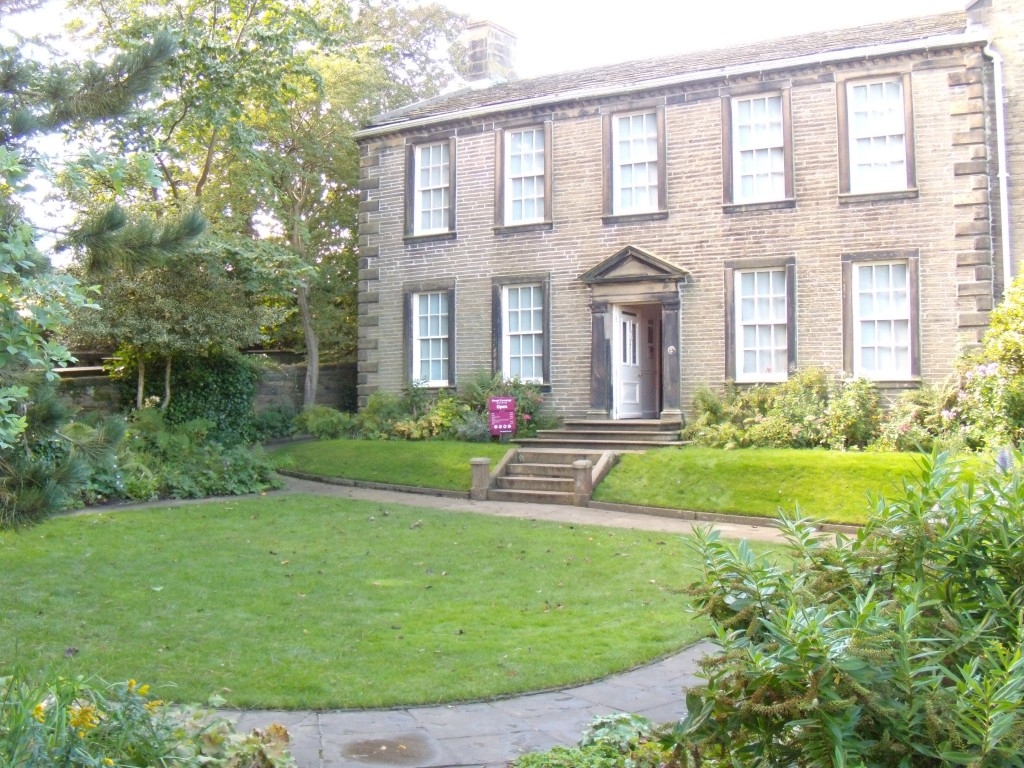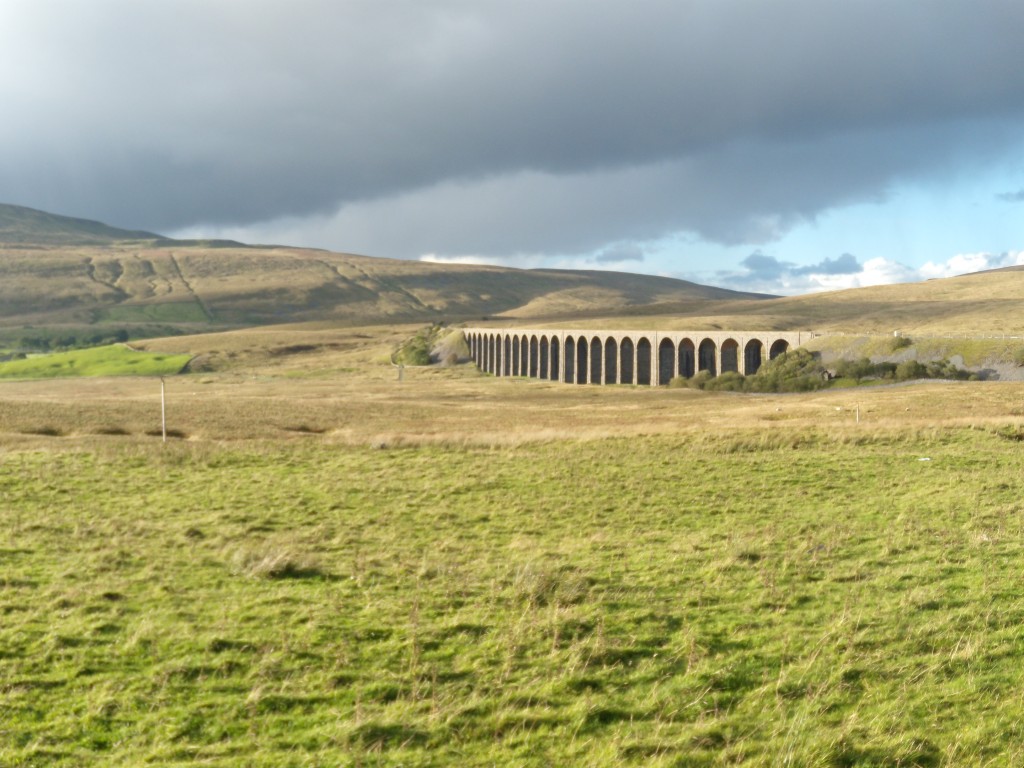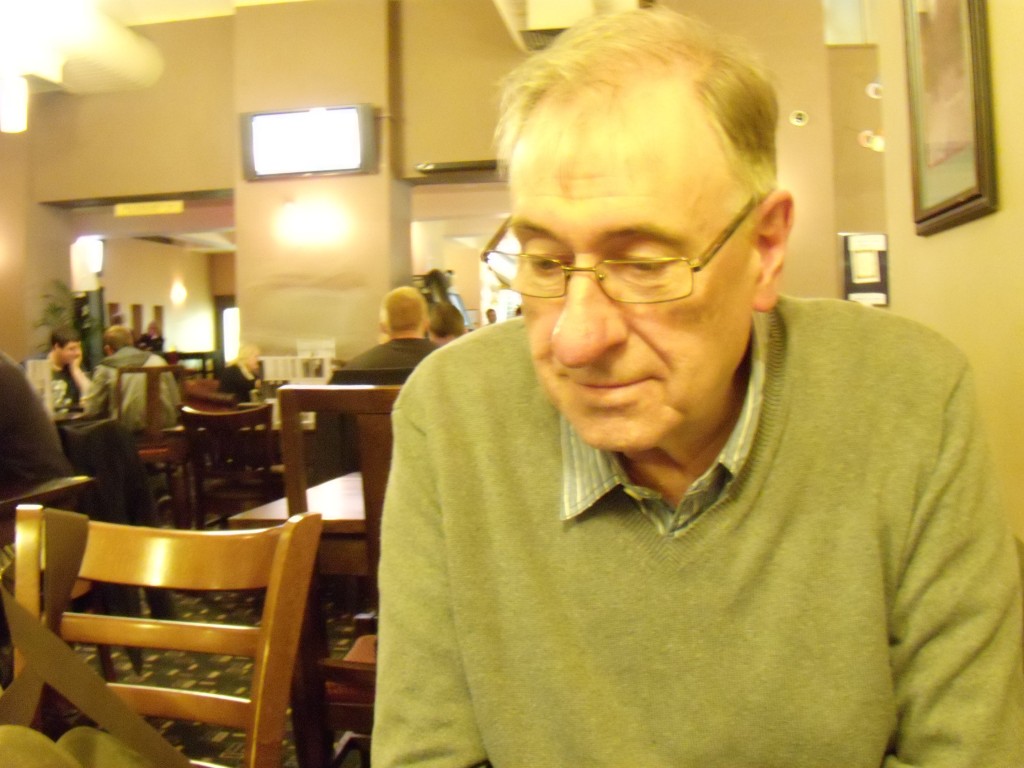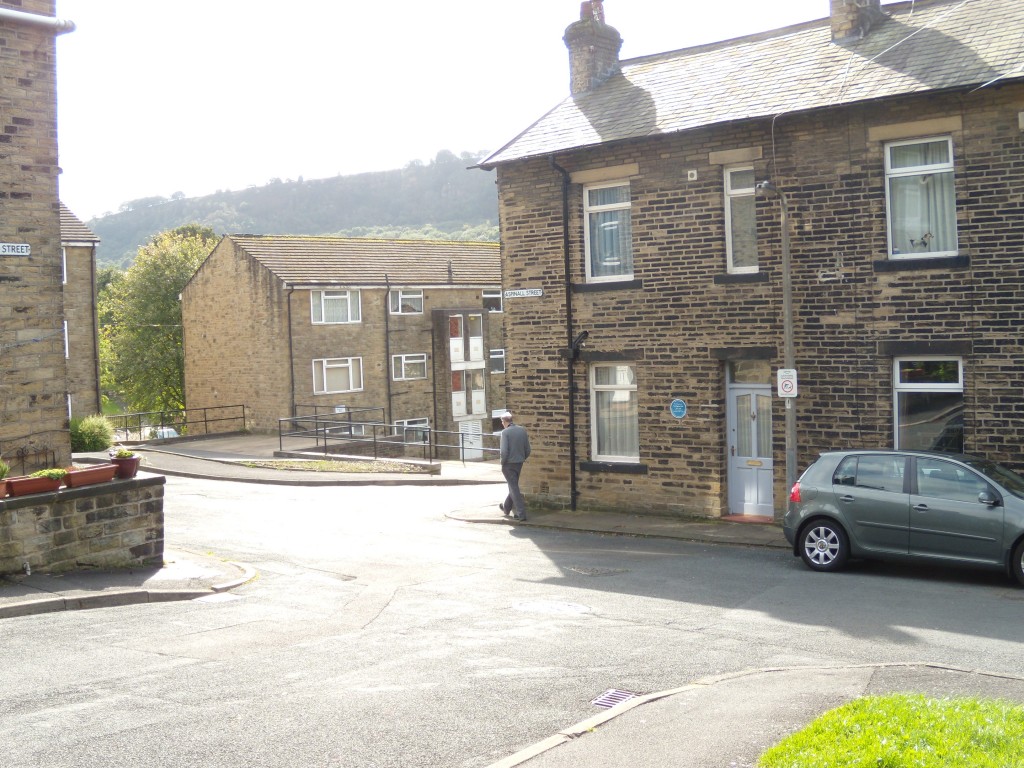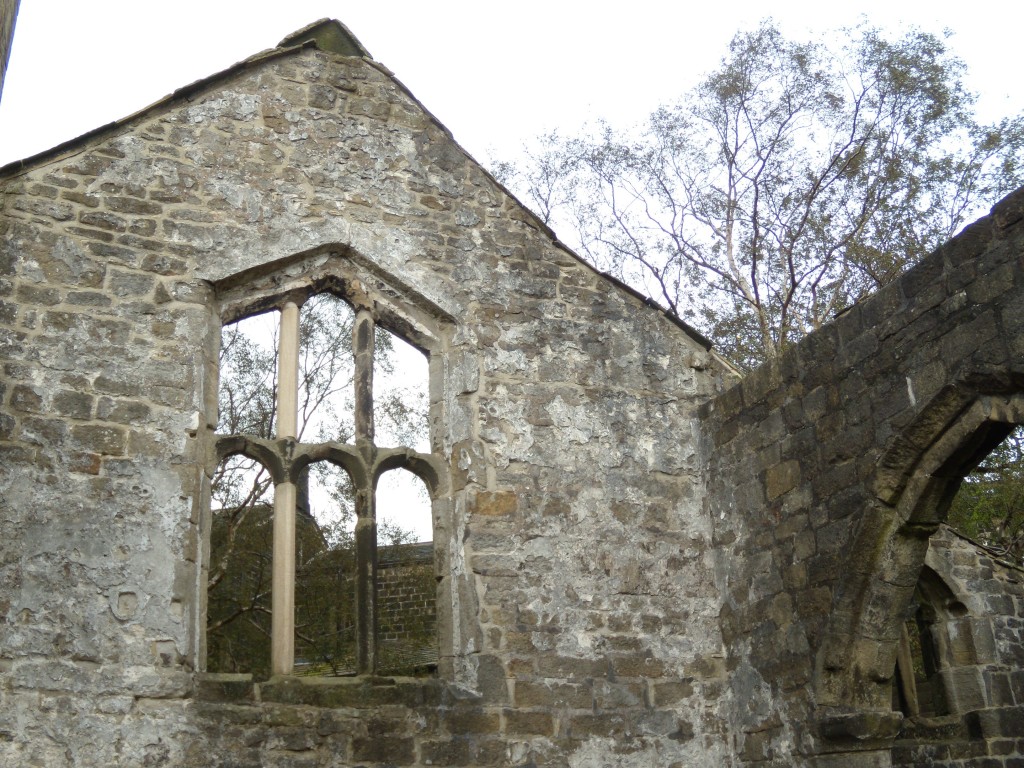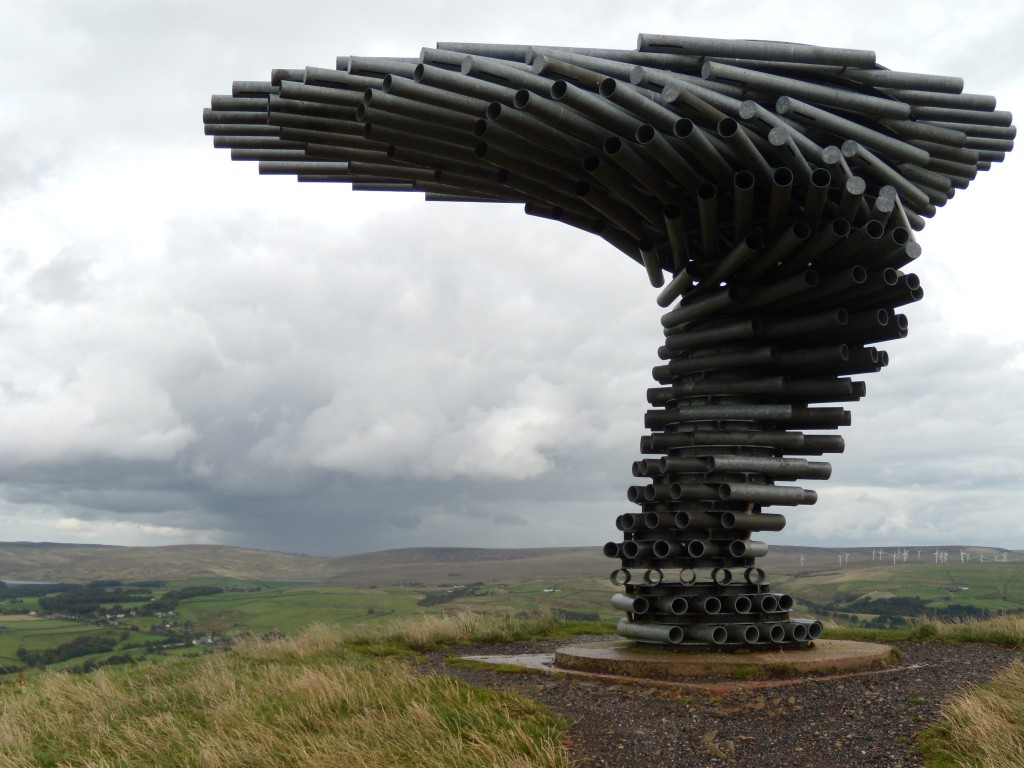We’ve been spending the past week exploring the Yorkshire/Lancashire borderlands, a part of the country neither of us had previously visited and that we found incredibly inspiring, both in terms of landscape and literary heritage. I’ve loved the work of the Brontes all my life, and in spite of the tourist trappings that are Haworth’s inevitable burden I felt very much moved to find myself inside the parsonage, stepping into the space where Anne and Emily and Charlotte read and wrote and discussed their work. The rooms of the house are surprisingly small. They have presence, or rather there is a presence, still tangible, within them, especially in the dining room, where the sisters read aloud to each other most evenings.
Unlike Haworth, the village of Mytholmroyd, where Ted Hughes was born, is – aside from the blue plaque beside the front door of No 1 Aspinall Street – completely untouched by tourism. It has grown in size of course, but the village Hughes would have known and remembered is still plainly visible, easily mappable. The warmth of the place (as with so many northern townships), its tie to the land, is palpable. I’ve known for a long time what it looks like – I was fifteen or sixteen when I first saw a photograph of the small terraced house that is Hughes’s birthplace – but still the impact of finally being there, of standing in the street outside, was considerable, a special moment.
Pendle Hill, Ilkley Moor, the journey by rail from Settle to Appleby, the Devonshire Inn at Skipton (where the opening chapters of The Space Machine take place) – these were all special moments. Most of all just the sense of space, both literal and imaginative, of high and narrow roads that might lead anywhere. The Forest of Bowland – an isolate domain of heather moorland and woodland trails – was a revelation.
A way-too-good-to-miss book sale in Skipton (silly prices) meant we returned with considerably more in our luggage than we started out with. I came away with Jeffrey Eugenides’ The Marriage Plot, Joan Didion’s Blue Nights, Annie Proulx’s Bird Cloud, Nicola Barker’s The Yips, Chad Harbach’s The Art of Fielding. I was also able to pick up Philip Almond’s new book about the Pendle witch trials, The Lancashire Witches. So that’s me sorted for the next couple of months. And when Chris has finished with Salman Rushdie’s Joseph Anton I’ll be reading that, too.
An amazing week.
Now that we’re back, I’ll be giving What Happened to Maree a close going-over – there are some line edits and other bits and pieces I need to attend to. After so many months of working on the book in isolation, having it read by another – Chris is, of course, the one reader I can trust absolutely – has somehow released it. Now, finally, I’m getting a sense of the novel as a whole – what it is, how it reads, what I meant by it – and I’m happy to say I’m feeling very excited.
